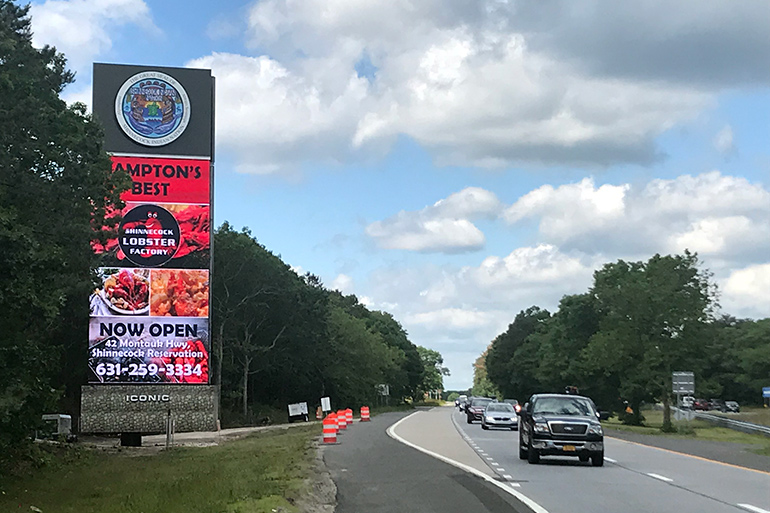Government Briefs

Funding Available For Water Quality
East Hampton Town has announced it will seek applicants to award up to $1.25 million in grant funding for water quality improvement projects.
The town’s Water Quality Technical Advisory Committee has established this bi-annual process to allow for applicants outside of town government to have the opportunity to have their request for funding considered.
Applications will be accepted between June 14 and August 15. Once the application period ends, all applications received will be reviewed and rated by the committee, and recommendations for grant awards will be presented to the town board.
Applications can be found on the town’s website on the Natural Resources Department’s Clean Water East Hampton page. For more information, contact Mellissa Winslow in the Natural Resources Department at mwinslow@ehamptonny.gov or by calling 631-324-0496.
Suicide Prevention Grant
The New York State Health Foundation has awarded a $340,000 grant to four counties, including Suffolk, to help prevent suicides.
The purpose of the grant, “Learning from Loss: Using Suicide Fatality Reviews for Effective Prevention Activities,” is to ensure that accurate data is collected by medical examiners investigating suicides and that in-depth community reviews of suicides are conducted to search for systemic patterns.
The New York State Office of Mental Health is matching foundations’ funds, meaning each county will receive approximately $100,000 over the two-year program. The grant money will be overseen by the Suicide Prevention Center of New York.
“We are thrilled to receive the financial support from both the health foundation and office of mental health to pilot this innovative model in New York State,” said Brett Harris of the Suicide Prevention Center.
The grant will allow the New York counties to run a pilot program based on a successful program used in Oregon in which a multidisciplinary team from the medical examiner’s office, healthcare providers, law enforcement, crisis workers, and the clergy shared information during in-depth reviews of suicides to search for patterns in suicides and used the information they obtained to reduce their number.
Crosswalks At Shelter Island School
New York State Assemblyman Fred Thiele announced that the state Department of Transportation will install new crosswalks and school crossing signs near the Shelter Island School to alert drivers of the presence of students near the roundabout at Route 114, School Street, and Bateman Road.
“In addition to a steady flow of vehicular traffic, this busy traffic circle services school children in grades K-12, as well as the Shelter Island youth center and the library,” Thiele said. “I am thrilled that measures are being taken to ensure the safety of the students that regularly use this intersection.”
As part of the project, scheduled to begin in the fall, the DOT will also upgrade and install pedestrian ramps compliant with the Americans with Disabilities Act. This work will be included in the ongoing Pedestrian Safety Action Plan contract, scheduled to begin in the fall of 2019.
Gas Price Legislation
Assemblyman Fred Thiele also announced that the New York State Assembly has passed legislation he sponsored that would prohibit unfair zone pricing of gasoline based on geographical location. Senator Ken LaValle sponsors the bill in the Senate.
“Zone pricing” refers to the establishment of price differences based on the location of the retail outlet within the relevant geographic market, without regard to the posted terminal price and any additional costs where the effect is to injure competition.
In 2008, New York State passed the first law in the country to outlaw the practice of gasoline zone pricing. Since that time, however, compliance has been sporadic and enforcement has been difficult. Thiele’s bill, which passed in the Assembly by a vote of 121-21, would enact the recommendations of a 2011 State Attorney General report to outlaw this practice.
This legislation also clearly defines the “relevant geographic market” and addresses the issue of “arbitrary” price differences. The weak definition of these terms in current law, among others, has resulted in no enforcement actions being brought forth since the original law was enacted.
Zone pricing occurs in many areas across the state, and the South Fork has been an area where consumers have been significantly affected by the practice, according to Thiele.
“Big oil companies have historically charged higher prices on the South Fork, as well as other areas, without regard to cost,” Thiele said. “It is clear that consumers on the South Fork need further protection from this unfair business practice.”
The bill awaits final action in the State Senate.
sjkotz@indyeastend.com



